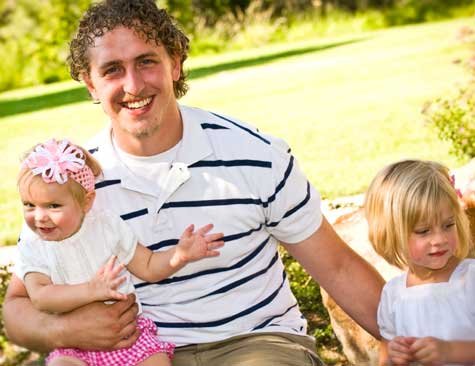
Parents play a vital role in the upbringing of their children. They are role models for them and have to groom them well so that they grow up to be responsible citizens. Much time and attention has to be given to them. The nutrition levels of the child has to be taken care of so that their physical growth is not hampered and a lot of love and affection has to be showered upon them so that they do not feel neglected. In case, they are neglected by parents, then the children can develop psychological problems.
In every country parents do take on their share of responsibility in the upbringing of their child. In the West parents do advise their children, but after a certain age they let them decide their own course of life. On the other hand, in the East parents feel that they must continue to help their children even if they have families of their own. Whatever said and done, the fact remains that in every society parents do have to make sure that their child grows up emotionally, psychologically and physically into a healthy human being.
The role of parents is no doubt well defined as caregivers. But can they be friends to their child?
Why a parent must be a friend to his or her child?
- The father and mother have well-defined roles no doubt in the upbringing of their child, but often the child needs more then just care. He or she needs someone to talk to and share his or her feelings.
- A parent must be approachable to his or her child at all times. The child must be feel free to share his or her inner most thoughts without any fear that the parent may reprimand him or her for committing something that she or she must not do. In other words, the parent must be a person who understand his or her child well and does not always make an issue of his or her actions.
- A friend must be someone a child can trust. A parent must make his or her child feel that he need not fear his or her parent.
- Parents who are too strict can put off a child as the child may not want to reveal him or herself.
- Counselors often advise the parents to be caring towards their child so that they remain close to each other. If a child drifts away from his or her parents, then he or she can get into bad habits.
- If a child has a good rapport with his or her parents, then the chances of his or her getting into wrong company are less as he or she will feel that parents are the people in whom they can confide in.
- Even at school parents are often advised by teachers that they must bridge the communication gap with their child and spend more time listening to their problems. Together they must resolve their problems.
Pros and Cons of Being Friends with Your Children
| Aspect | Pros | Cons |
| Communication | Encourages open and honest dialogues. | May blur boundaries between parent and peer discussions. |
| Trust and Respect | Strengthens mutual trust and respect. | Over-familiarity may lead to disrespect. |
| Understanding and Empathy | Enhances understanding of each other’s perspectives. | Parental concerns may be perceived as interference. |
| Shared Interests | Creates opportunities for bonding through shared activities. | Potential for age-inappropriate exposure. |
| Discipline and Structure | Friendly approach can lead to self-discipline. | Risk of undermining authority and structure. |
| Conflict Resolution | May encourage collaborative problem-solving. | Struggles may arise in establishing boundaries. |
Children need their parents and visa- versa. Both must retain their relationship at friendship level rather than merely that of parent and child. As the saying goes €œ a friend in need is a friend in deed. In other words, a parent must be like a friend and help his or her child when the need arises, without letting him or her down.